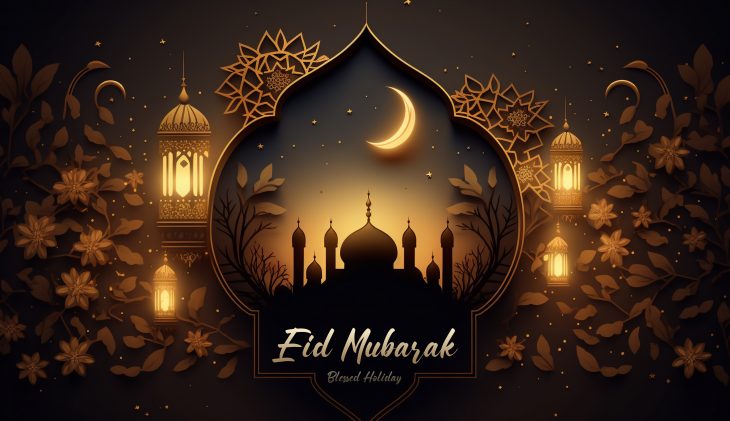
Ramadan, one of the five pillars of Islam, is a month of deep spiritual introspection, prayer, and community for Muslims worldwide. It is a time when Muslims strive for inner growth, increased devotion, and a sense of solidarity with fellow Muslims. These 11 facts about Ramadan provide an insightful journey into the traditions, practices, and significance of this holy month.
A Month of Fasting
Ramadan is best known for the practice of fasting, known as ‘Sawm,’ from dawn until sunset. This fasting is not merely about abstaining from food and drink, but also from negative habits, thoughts, and actions. It serves as a time for Muslims to purify their mind, body, and soul.
One of the Five Pillars of Islam
Islam is built on five pillars: fundamental acts of worship that every able-bodied Muslim is obliged to observe. These are the profession of faith (Shahada), prayer (Salat), almsgiving (Zakat), fasting during Ramadan (Sawm), and pilgrimage to Mecca (Hajj). As such, Ramadan holds a central place in the Islamic faith.
Commemorating the Quran
Ramadan commemorates the month in which the Quran, the holy book of Islam, was revealed to the Prophet Muhammad by the angel Gabriel. The exact night of revelation is known as ‘Laylat al-Qadr’ or ‘The Night of Power,’ and it is believed to fall on one of the last ten nights of Ramadan.
Determined by the Lunar Calendar
The Islamic calendar is lunar, which means that it is based on the phases of the moon. Therefore, the start of Ramadan shifts by approximately 11 days each year in the Gregorian calendar. It begins with the sighting of the new moon, which is confirmed by local religious authorities.

Pre-Dawn Meal and Breaking the Fast
Before the break of dawn, Muslims consume a meal known as ‘Suhoor.’ After sunset, the fast is broken with a meal called ‘Iftar.’ Traditionally, the fast is broken by eating dates, as was the custom of Prophet Muhammad.
A Time of Increased Prayer and Recitation of the Quran
During Ramadan, Muslims engage in increased prayer and recitation of the Quran. Special prayers called ‘Tarawih’ are held in mosques every night of the month, during which a section of the Quran is recited. By the end of Ramadan, devout Muslims will have completed the recitation of the entire Quran.
Zakat and Charity
During Ramadan, Muslims are encouraged to give generously to charity, an act known as ‘Zakat.’ The act of giving is considered a way to purify one’s wealth and help those in need. Many Muslims choose to give their annual Zakat during this month to benefit from the greater spiritual reward that is promised.
Eid ul-Fitr: The Festival of Breaking the Fast
At the end of Ramadan, Muslims celebrate a festival known as ‘Eid ul-Fitr,’ which translates to ‘Festival of Breaking the Fast.’ This joyous day is marked by communal prayers, feasts, and the giving of gifts. It is a time of joy and celebration, marking the end of the fasting period.

Fasting Exceptions
Islam recognizes certain circumstances in which individuals may be exempt from fasting due to physical limitations. These exceptions encompass the elderly, the sick, pregnant and nursing women, menstruating women, and travelers.
A Month of Reflection and Community
Ramadan is a time for deep reflection and increased devotion. It’s also a time for family and community. Many Muslims will invite their neighbors, friends, and relatives to break the fast with them, creating a strong sense of community and belonging. These gatherings often include sharing meals, prayers, and engaging in charitable activities together.
Spiritual Rewards
Muslims believe that the rewards for good deeds are multiplied in Ramadan. The act of fasting is seen as a form of worship, and it brings Muslims closer to God. It is also believed that fasting leads to spiritual growth, self-discipline, and empathy toward those less fortunate.
Conclusion
Ramadan is a fascinating and deeply spiritual month for Muslims worldwide. It serves as a time for internal growth, reflection, and a rekindling of faith. The shared experiences of fasting, prayer, and charity create a sense of unity and community among Muslims, regardless of their geographical location. So, whether you are learning about Ramadan for personal interest, academic reasons, or to better understand and respect the practices of your Muslim friends, colleagues, or neighbors, we hope these 11 facts about Ramadan have enriched your knowledge and appreciation of this sacred month.
Was this page helpful?
Our commitment to delivering trustworthy and engaging content is at the heart of what we do. Each fact on our site is contributed by real users like you, bringing a wealth of diverse insights and information. To ensure the highest standards of accuracy and reliability, our dedicated editors meticulously review each submission. This process guarantees that the facts we share are not only fascinating but also credible. Trust in our commitment to quality and authenticity as you explore and learn with us.
